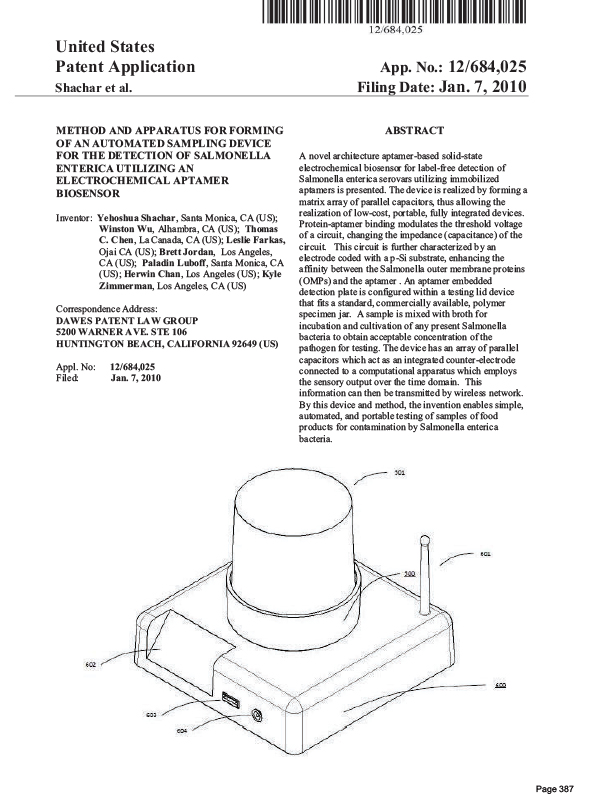PATENTS
Method And Apparatus For Forming Of An Automated Sampling Device For The Detection Of Salmonella Enterica Utilizing An Electrochemical Aptamer Biosensor
Patent Number: 12/684 25
Date Filed: January 7, 2010
Country Filed In: USA
Product Application: Aptamer Biosensor
Description:
A novel architecture aptamer-based solid-state electrochemical biosensor for label-free detection of Salmonella Enterica Serovars utilizing immobilized aptamers is presented. The device is realized by forming a matrix array of parallel capacitors, thus allowing the realization of low-cost, portable, fully integrated devices. Protein-aptamer binding modulates the threshold voltage of a circuit, changing the impedance (capacitance) of the circuit. This circuit is further characterized by an electrode coded with a p-Si subsrate, enhancing the affinity between the Salmonella outer membrane proteins (OMPs) and the aptamer . An aptamer embedded detection plate is configured within a testing lid device that fits a standard, commercially available, polymer specimen jar. A sample is mixed with broth for incubation and cultivation of any present Salmonella bacteria to obtain acceptable concentration of the pathogen for testing. The device has an array of parallel capacitors which act as an integrated counter-electrode connected to a computational apparatus which employs the sensory output over the time domain. This information can then be transmitted by wireless network. By this device and method, the invention enables simple, automated, and portable testing of samples of food products for contamination by Salmonella Enterica bacteria.
Field of Use: The VEGF biosensor is part of Josh Shachar's exploration into developing next-generation biosensors that are capable of detecting specific biomarkers within a sample at clinically relevant levels in a simple portable point-of-care-device that can provide physicians and health-care workers rapid and affordable pathogen detection without the need for a dedicated lab and specialized technicians and all the associated cost therein. As described, the VEGF biosensor would be targeted to helping physicians treating cancer tumors with chemotherapeutic to be able to measure biological response modifiers (BRMs) for the purpose of determining treatment efficacy.

